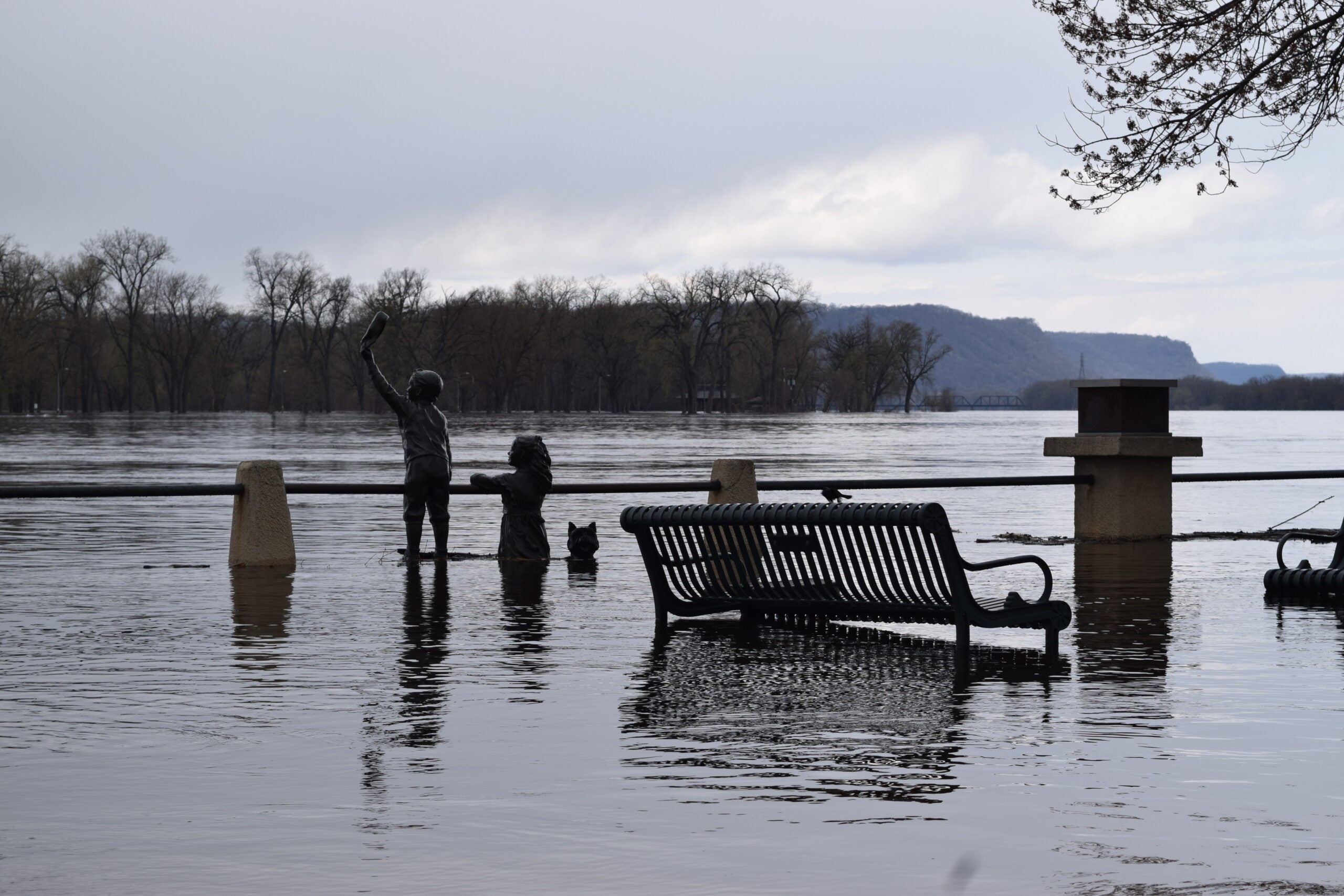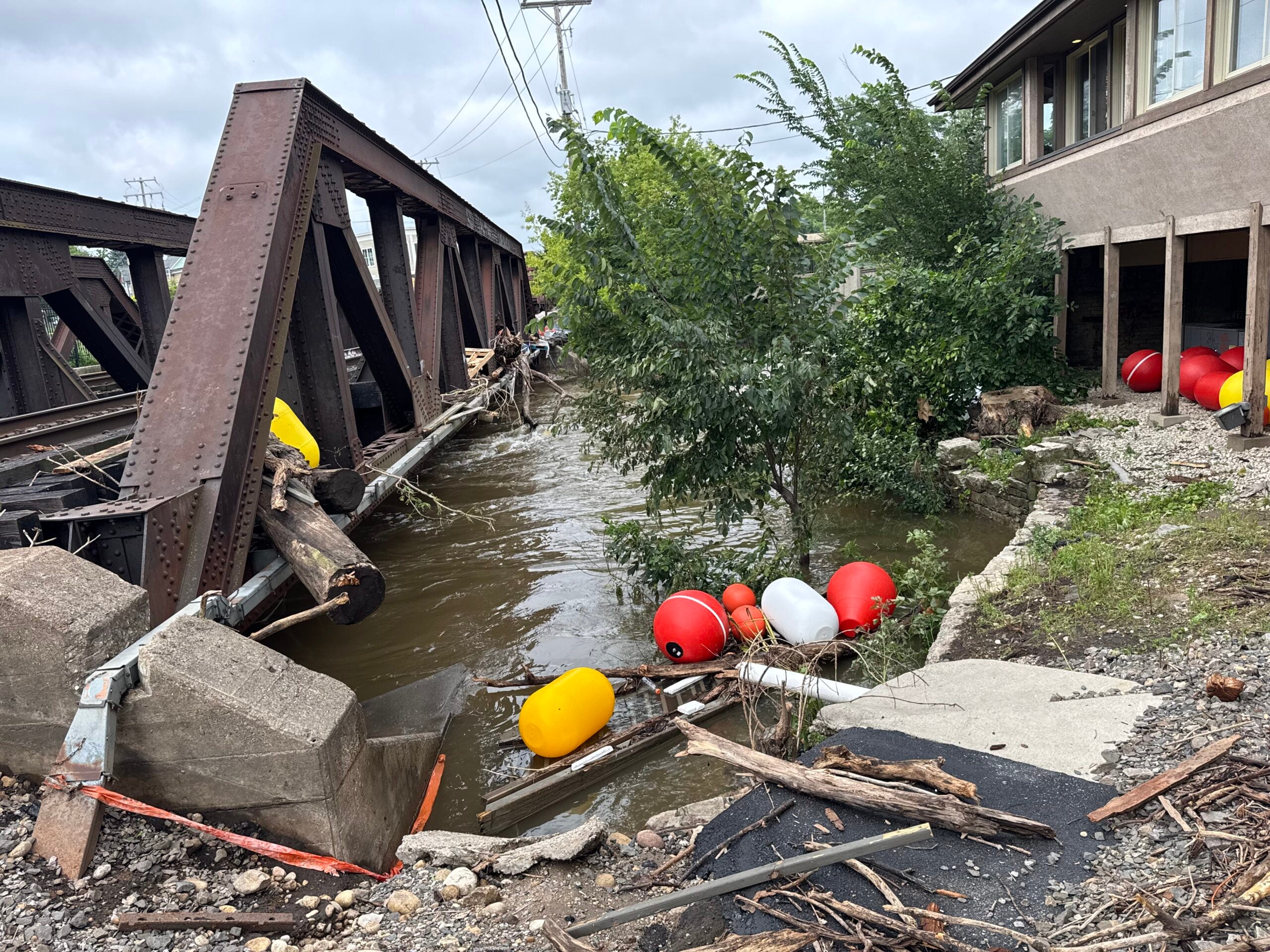Gov. Tony Evers signed a bill Wednesday to help Wisconsin’s flood-prone communities before an emergency.
The state Legislature approved $2 million dollars to provide grants to local governments for projects aimed at identifying flood vulnerabilities and improving resilience.
“During my time as governor, I’ve visited homes across our state and heard from families who are asking us to help them prepare for flooding to keep their homes, farms, and businesses safe,” Evers said in a statement. “This bill is an important step to give families and communities peace of mind and the tools they need to prevent flood damage in the future.”
News with a little more humanity
WPR’s “Wisconsin Today” newsletter keeps you connected to the state you love without feeling overwhelmed. No paywall. No agenda. No corporate filter.
The bipartisan bill creates two types of grants to better protect against 100-year floods that are expected to increase due to climate change.
One grant would provide up to $300,000 to assess flood risk. Another grant, capped at $250,000, would fund restoration projects that reduce flood damage and protect important infrastructure like roads.
The Wisconsin Wetlands Association collaborated with legislators on the law. Jennifer Western Hauser, the policy liaison for the group, said the state has lost up to 50 percent of its historic wetlands, which help absorb rain.
“One acre of wetlands can store up to 1.5 million gallons of flood water,” she said, and flooding occurs when wetlands are degraded.
Evers has called for funding flood response mitigation in the past. In 2020, he supported a bill that would have had the state Department of Transportation reimburse counties and municipalities for up to 50 percent of the cost to replace or modify highway culverts and bridges at risk of flood damage.
The grant programs under the new law will fund up to 75 percent of the total anticipated costs.
State Rep. Loren Oldenburg, R-Viroqua, was the lead sponsor of the bill in the Assembly. He previously told WPR that he hopes the state’s emergency management department can find additional funding to supplement the program, because investments ahead of an emergency can cost less than repairing flood damage.
Supporters say that along with saving money, the plan will also help save at-risk birds.
Marnie Urso is the senior policy director at Audubon Great Lakes, the regional office of the National Audubon Society. She said that in addition to preventing flooding, restoration efforts will provide a vital habitat for birds and other wildlife.
“The amazing thing about wetlands is they can solve a number of issues facing wildlife and communities” she said. “They provide habitat for birds that need it.”
Wisconsin Public Radio, © Copyright 2026, Board of Regents of the University of Wisconsin System and Wisconsin Educational Communications Board.







